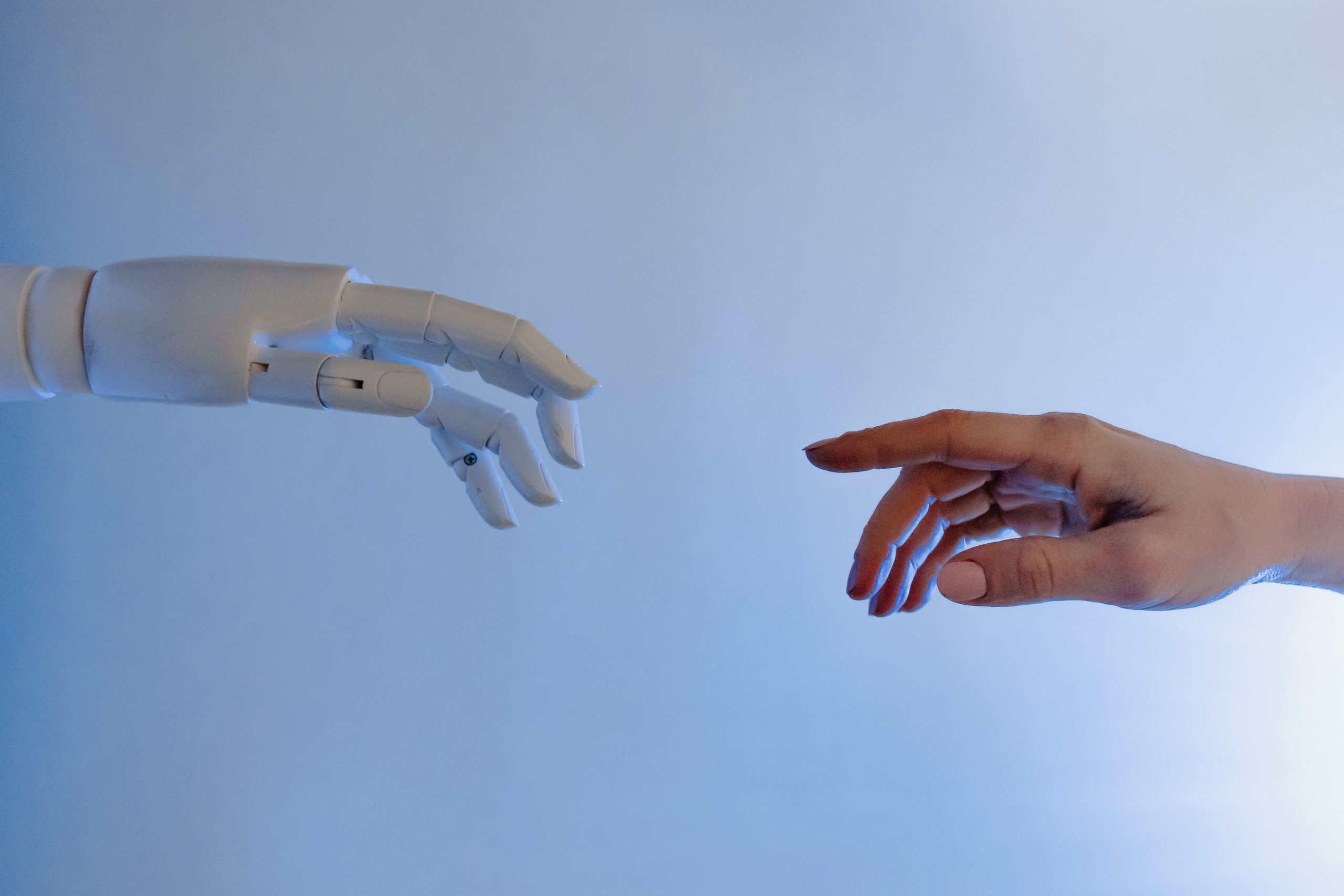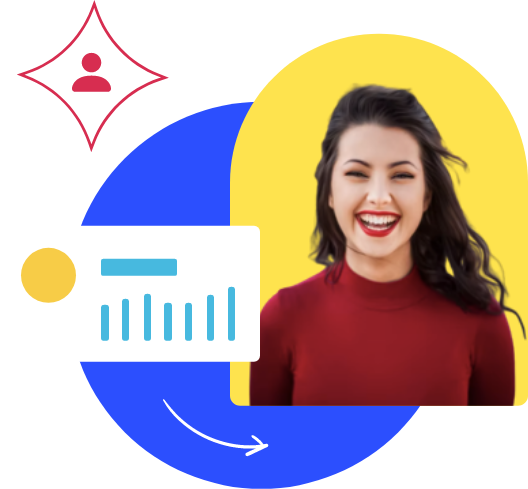
AI: We know it’s coming so how is it going to help you hire in the future?
What is AI (Artificial Intelligence)?
Artificial intelligence (AI) is the simulation of human intelligence in machines that are programmed to think and act like humans. These intelligent machines can be trained to perform various tasks, such as recognising speech and patterns, making decisions, and solving problems.
AIs proliferation throughout our culture and consciousness, up until very recently, has been dominated mainly by Hollywood and various depictions of machine intelligence that ultimately becomes a malignant force, therefore painting a negative picture of AI as a whole. We’ve all seen or heard of films like The Terminator, through to I, Robot, The Matrix and Ex Machina, and the general theme is that for all its uses, AI eventually becomes more powerful than human intelligence and begins to become conscious, ultimately turning evil, yadda, yadda, yadda, you know the script…
But, if we can, for one moment, ignore the Hollywood programming, and explore the uses of AI and, especially, its potential within recruitment, we can see genuine benefits.
“A study by Deloitte found that companies that use AI in their recruitment process see an average 50% reduction in the time it takes to fill open positions.”
Which types of AI are out there currently?
There are several different types of AI, including:
- Reactive machines: These AI systems can only react to the stimuli they receive and do not have the ability to learn or remember past events
- Limited memory: These AI systems can remember past events, but they do not have the ability to use that information to improve their performance
- Theory of mind: These AI systems can understand and interpret human emotions and thoughts
- Self-awareness: These AI systems have a sense of self and are able to reflect on their own actions and thoughts.
The last two in the list given above are the ones that scare us here at YTS!!
“Research by LinkedIn shows that AI-driven recruitment can lead to an increase in the applicant-to-hire conversion rate as well as a decrease in time-to-hire by as much as 30%.”
What AI products are in the recruitment market currently?
There are several AI products and providers currently available in the recruitment market that can help companies automate various tasks in the recruitment process. It’s important to note that we don’t favour any as we’re tech agnostic, but we have listed some of the better-known providers with whom we have had prior working experience, including:
- CV Screening Software: These AI-powered tools use natural language processing (NLP) and machine learning (ML) algorithms to scan resumes and identify the most qualified candidates based on a set of predefined criteria, such as, keywords and qualifications. HireVue (https://www.hirevue.com/) provide some of the best CV Screening Software in the market.
- Chatbots: These AI-powered virtual assistants can be used to engage with candidates, answer their questions, and guide them through the application process. Two providers we’d recommend are Humanly (https://humanly.io/) and Olivia (https://olivia-ai.org/).
- Interview Scheduling Software: AI-powered scheduling tools that automatically schedule and reschedule interviews based on candidates’ availability, reducing the time and effort required for manual scheduling. Most of us will have heard of Calendly (https://calendly.com/) as a good example of this kind of software.
- Predictive Hiring Analytics: These AI-powered tools use data from previous hires, applicant tracking systems (ATS), and other data sources, to identify patterns and predict which candidates are most likely to be successful in a given role. Two well-known examples of software that provide strong predictive analytics are SAP (https://www.sap.com/uk/index.html) and IBM (https://www.ibm.com/artificial-intelligence?lnk=flathl).
- Video Interview Software: AI-enabled software can analyse candidates’ facial expressions, tone, and speech patterns, and give a score based on the results, helping to identify the best candidates. HireVue (https://www.hirevue.com/) provide some of the best Video Interview Software.
- Background Check Software: AI-powered background check software can automatically verify a candidate’s education, work experience, and other qualifications, making the background check process faster and more efficient. Three software providers that we’d like to highlight here are Checkr (https://checkr.com/), Checkmate (https://www.checkmate.tech/) and HireRight (https://www.hireright.com/).
- Candidate Experience Optimisation Software: These AI-powered tools are used to analyse and improve the candidate experience by understanding candidates’ needs and providing an optimal experience through various touchpoints of the recruitment process. A good provider of this type of software in our experience is Pymetrics (https://www.pymetrics.ai/).
These are just a few examples of the many AI products that are currently available in the recruitment market. It’s important to note that companies should carefully evaluate the capabilities of these products and ensure that they align with their specific recruitment needs and goals before making any investment. Of course, feel free to reach out to us at david@yourtalentsolutions.co.uk should you have any questions around any of the above solutions.
What implications could AI have on the recruitment sector?
Artificial intelligence (AI) has the potential to significantly impact the recruitment sector in a number of different ways. Some of the ways it could do so are:
- Automation of tasks: AI can be used to automate various tasks associated with recruitment, such as CV screening and interview scheduling. This can obviously save time, reducing the workloads for recruiters, passing on soft cost-savings to clients via time saved and allowing recruiters to focus their efforts on the more value-added and/or strategic elements of recruitment on their clients’ behalves.
- Reduction of bias: AI can help eliminate bias in the recruitment process by using objective criteria to evaluate candidates, rather than relying on subjective judgments made by humans. This can be a real winner, especially in the sphere of D&I. Given that, in theory, certain AI systems can be programmed to not mimic human emotion and bias, these elements should therefore not factor into decision-making, thus making the recruitment process as a whole, fairer.
- Increased efficiency: AI can help identify the most qualified candidates by analysing large amounts of data and using machine learning algorithms to identify patterns and trends that may not be obvious to humans. This can improve the overall efficiency of the recruitment process.
- Improved candidate experience: AI can help streamline the recruitment process for candidates, making it easier for them to apply for jobs and receive feedback on their applications.
“A study by the Talent Board, which provides an annual benchmark for candidate experience, suggest that use of AI in recruitment improved candidate experience by 23%.”
However, there are also potential negative implications of AI in the recruitment sector, including the potential displacement of human workers – we absolutely do not advocate this and envision a world where human recruiters and AI can work together for the best possible results, both in terms of quality of output as well as efficiency. To be clear, we see AI working for us to ultimately give clients a better service that is cheaper and AI can be a real factor here. That said, it is important for organisations to carefully consider the potential impacts of AI on their recruitment processes and to take steps to mitigate any potential negative consequences.
Additional benefits of using AI in the recruitment process
In addition to the reasons given above that advocate for the use of AI within the recruitment sector, there are added benefits that we’d like to touch upon, including:
- Cost savings: Using AI to automate parts of the recruitment process will ultimately help reduce the overall cost of hiring by reducing the need for humans to carry out manual/menial tasks. This is kind of the Holy Grail for recruitment – along with quality-of-hire and speed-of-hire – and we see AI having a potentially massive part to play in passing on cost-savings to end-clients, both in terms of soft cost-savings i.e., time efficiencies as well as hard cost-savings i.e., pounds off your bottom line.
- Increased accuracy: AI can help identify the most qualified candidates by analysing large amounts of data and using machine learning algorithms to identify patterns and trends that may not be obvious to humans. At the very least, AI can churn through data a lot quicker than a recruiter and therefore has definite implications and benefits to screening, interviewing, scoring and many other areas. It also has great potential within the sphere of MI (Management Information) and Data, and we all know how much we love data!!
The development of AI has the potential to revolutionise many industries and change the way we live and work. However, it has also raised ethical concerns about the impact it may have on employment and privacy.
It’s important to note however that we are not advocating for AI alone and/or AI replacing human intelligence, aptitude, ability etc., not to mention all of the other facets of “intelligence” that we, as a species bring to the table, including, emotional awareness, empathy, foresight, past experience etc. The way we see it, AI has great potential in supporting recruitment/recruiters in conducting some of the more time-dependent parts of the recruitment process such as those listed above like, screening, allowing them to focus on the more strategic elements of recruitment and thus adding greater value to their clients.
And bias can still creep into any use of AI, it can find its way into the algorithms quite easily if you’re not careful. AI will learn to make decisions based on the data and parameters you provide, especially when it’s new to your process. This can include biased human decision-making or social inequalities including areas such as gender, race and sexual orientation. If someone feeding the AI the data has unconscious or even conscious bias, the AI could well select in the same manner. Business and HR Leaders will need to be responsible for making sure this doesn’t happen. The real benefit of AI in the future is that the systems will help us to improve on human decision-making, but as with any data-led project, if you put the wrong information in, you’re likely to get results that are wide of the intended mark.
The Utopia we foresee is one in which AI supports the more demanding, less value-added areas of the recruitment process, but always with human oversight and quality assurance. A world where AI can be a force for good and a world in which, hopefully, it doesn’t become too strong and destroy your recruitment process, or the world, for that matter!


